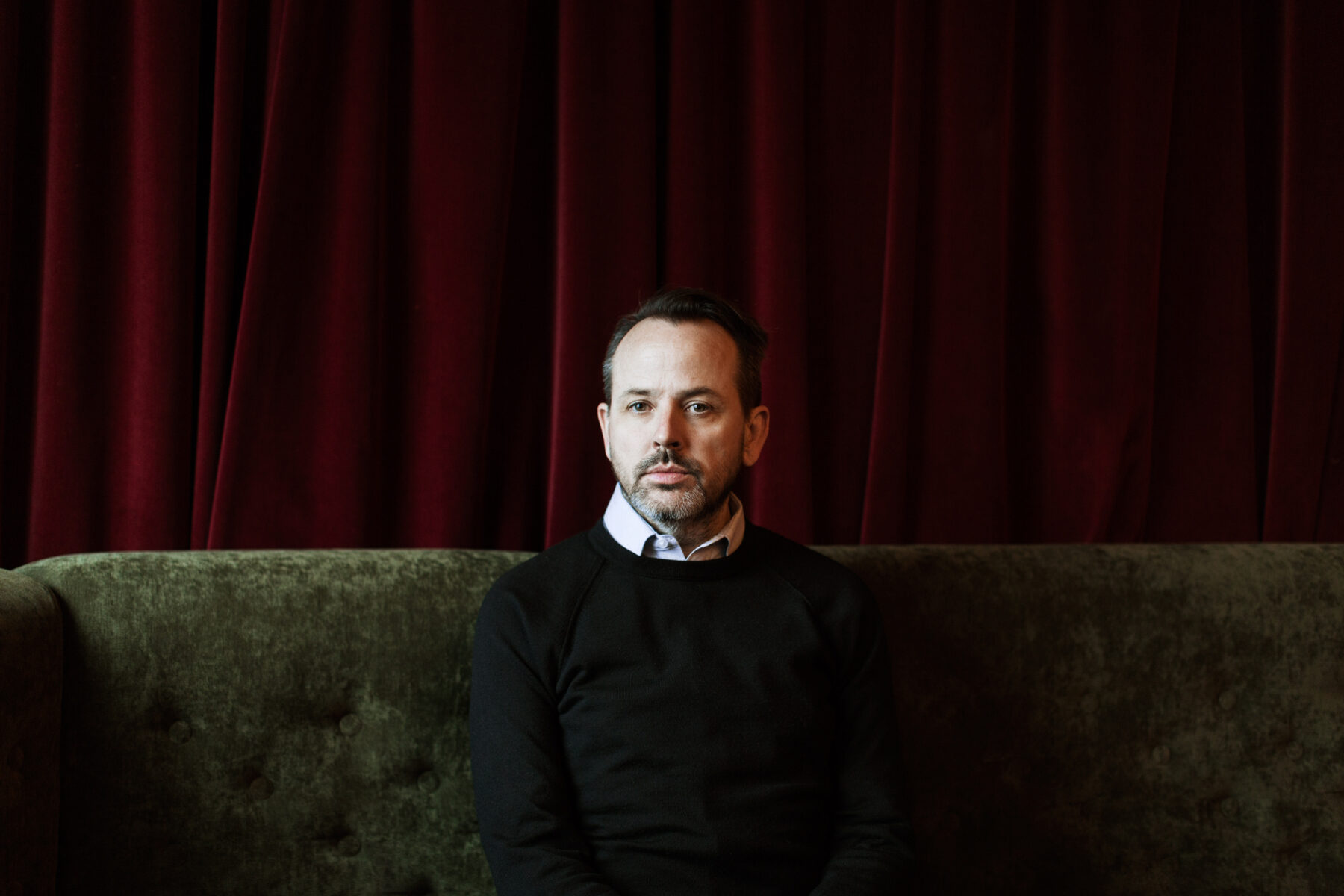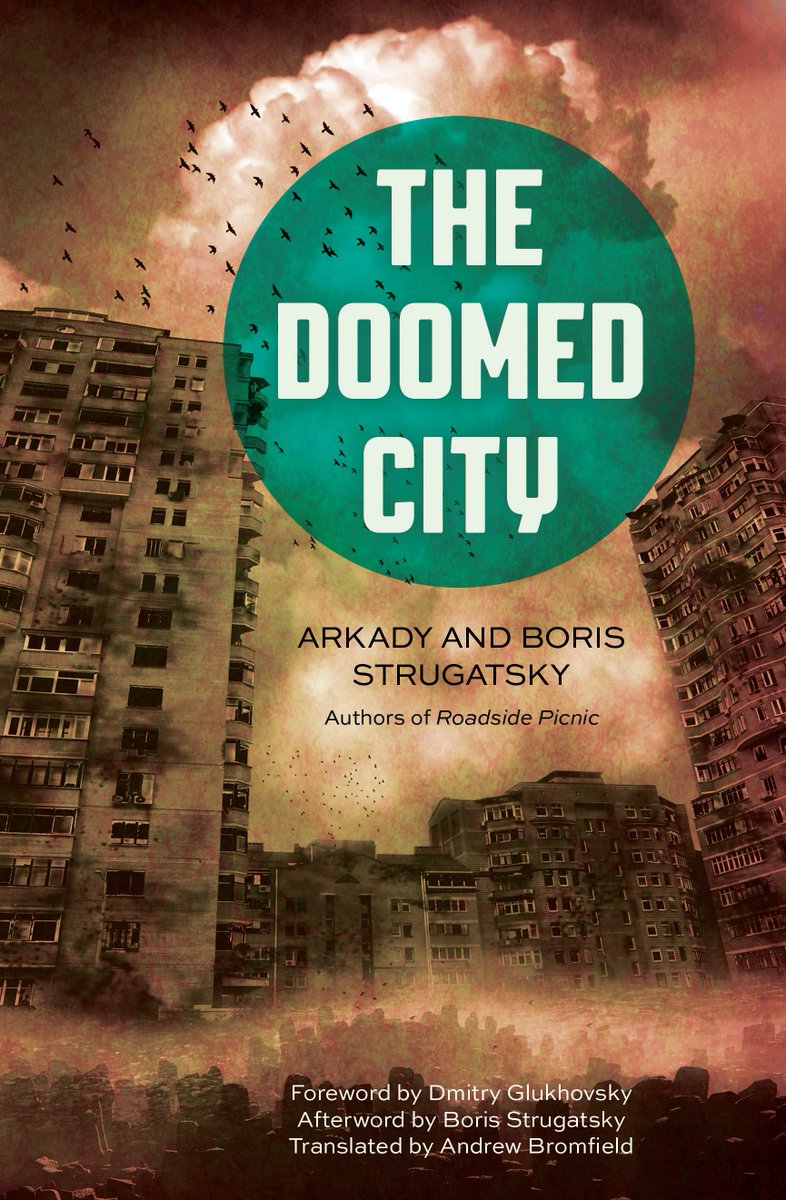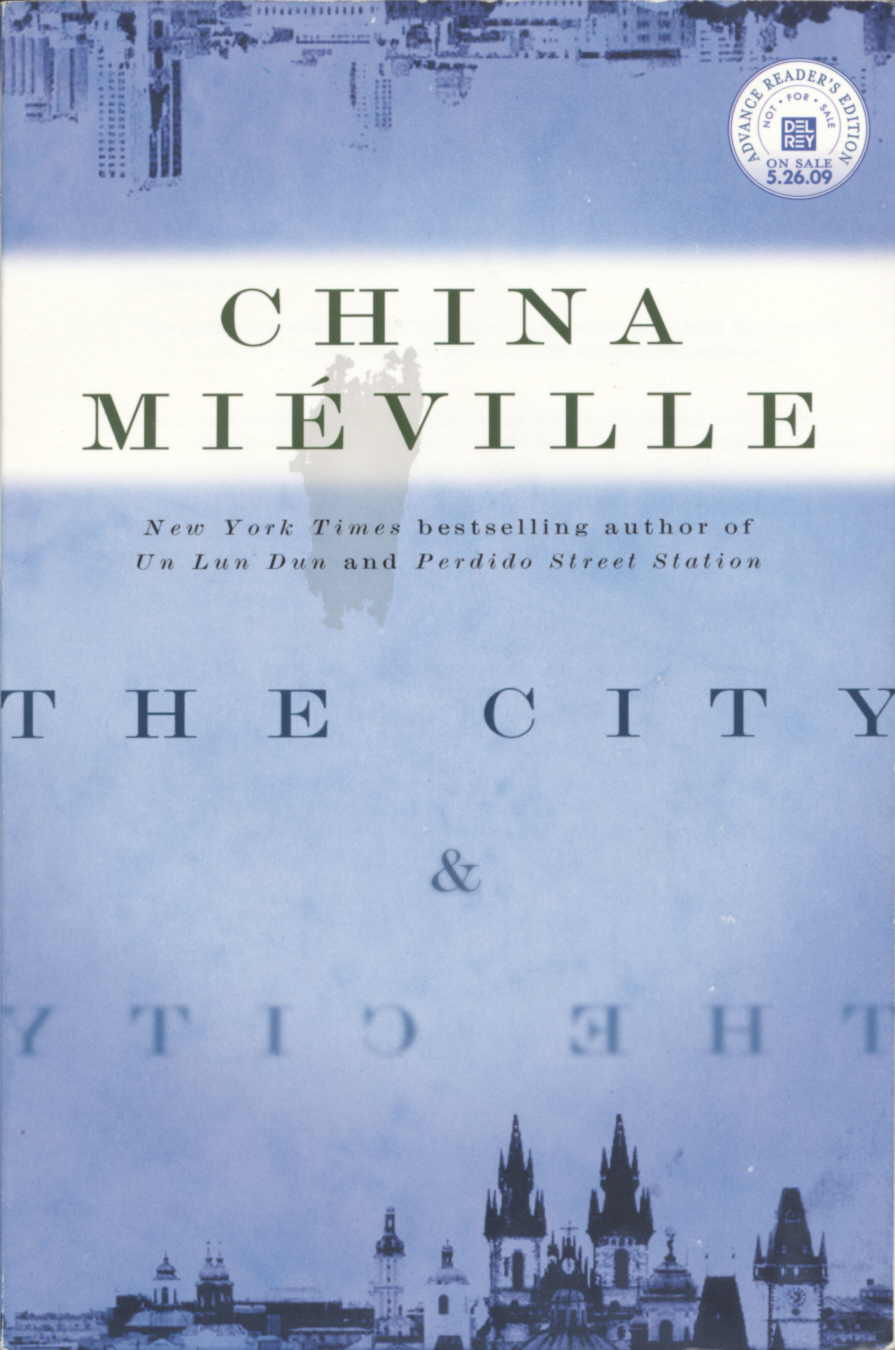It’s a cold morning in Moscow and both the Strelka Institute and an adjacent bar, which usually attracts crowds because of the amazing view of the Moskva River are nearly empty. There are no students around but Benjamin Bratton is already here. He has just arrived in the Russian capital with no signs of jet-lag.
As a professor at Strelka Institute for Media, Architecture and Design in Moscow and a California native, Benjamin is used to a life between two continents and even draws inspiration from this experience. He is currently Education Program Director at the Strelka and simultaneously a Professor of Visual Arts and Director of the Center for Design at the University of California, San Diego, where he founded the Speculative Design undergraduate major.
Fresh off a plane from San Diego, Benjamin is surprisingly alert, easily jumping from the topic of virtual reality to the material world and references Nicolas Copernic and Alan Turing, Star Trek and Andrei Tarkovsky films. When he’s not lecturing, he writes both fiction and non-fiction books on the future, tech, media, and sociology. His recent book The Stack (MIT Press, 2016), argues that new technologies like AI and cloud computing create one huge structure consisting of a plurality of layers. We sit down with a view of the Moskva to discuss life in two distinctly different cities and get Benjamin’s bird’s eye view on everything from globalization to artificial intelligence and the current state of urbanism, politics and philosophy.
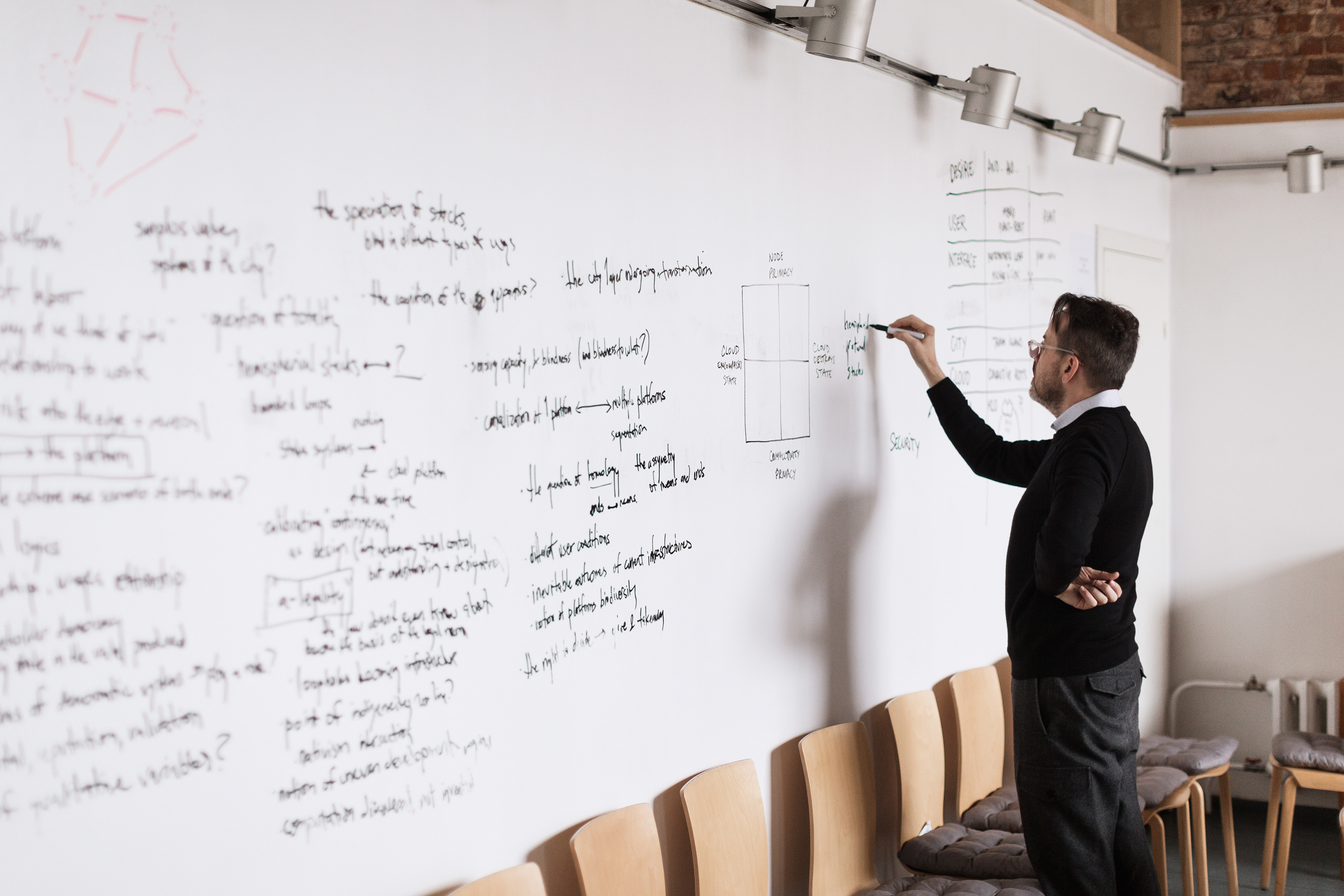

-
So, Benjamin, tell us how your program here at Strelka is looking for solutions for the future of urban living?
We’re trying to shift the discussion around urban design and re-focus our attention on longer-term solutions. Our goal is to frame urban design problems in relationship to the actual scale by which urban system operate. We should not accept that a ten-year plan is a long-term plan in a city that may be a thousand years old. For the program, we are looking at the year 2050 but it’s important we don’t see 2050 as being some far away “future.” 2050 is not really the future; we are all designing 2050 right now whether we mean to or not.
Second, we are looking at shifts in urbanism that prioritize the non-human systems as an important area of technological and intellectual research. We are, for example, interested in automation and AI at an urban scale. We look at the movement of objects and at shipping, logistics, warehouses, data centers many of which are in the countryside and along remote coasts. These are essential infrastructure; they may define the urban systems of our time and but we don’t live inside them in the same way we might other buildings. While, the question of human occupation, such as housing, is still very important it’s not the whole story. We need to also think of non-human centered urban design.
-
How do you think about urbanism beyond the categories of architecture and design?
When we talk about AI at an urban scale it’s still an architectural and urban problem; It just changes what these problems are. Our perspective is different than the conventional smart city, which may start with the premise that we are going to use information technology to manage an urban system we already in place. I am looking at AI and automation in a different way. I am interested in new kinds of systems and ways of life that could not have been possible before. This also includes, by the way, conservation. Our emphasis on longer term thinking includes the past as well as the future.
It also looks not only with landscape scale systems but also at very immediate scales of experience. In relation to AI, we are looking very closely at the role of sensing, such as machine sensing and machine vision. In some cases these technologies are closely interconnected with AI systems, and the distinction between where the sensing stops and the information processing begins is blurry. This has interesting philosophical implications as well. We see also from recent work in evolutionary robotics that how an A.I. senses the world may be inseparable from the kind of intelligence that it has about the world. This is true also at the urban scale as well. Sensors are the sensory apparatus of the A.I. — its eyes, ears, nose, etc. The city is smart but in a completely different way, and A.I. is evolving at the urban scale but differently than how animals evolved.
We are interested in the economics of automation. It will produce new kinds of jobs and will eliminate others. More widespread automation will shift the relationship between work and leisure, between production and consumption that will be socially transformative. How so is both design problem and a political problem. I don’t see this as a science fiction scenario. Automation already alters the kinds of cities that we make today. When so much is automated from inside distant data centers, the conventional sense of place is less certain.
What is at stake is quite pressing. Many of our urban problems may be made worse when we are content to think of such technologies primarily in terms of management and optimization, instead of the deeper and more fundamental and deeper challenge they pose to what counts as “urbanism.”
“We are thinking of urbanism of non-human systems.”
-
Can you name some interesting projects that are thinking about this kind of future?
We see these urban futures in relation to economic networks. For example, together with Strelka program participants, we are looking once more at the relationships between cities and states. Throughout history, large cities have had deep networks with one another that can be deeper than those with their host countries.
We are interested in paradoxes. On the economics of automation, some of us are considering the implications of UBI (Universal Basic Income). It may create interesting unintended consequences that relate to how cities and states interact. Many UBI projects usually take place within a specific jurisdiction and a relatively contained walled garden.
If that remains the case, then we may see a fortification of the walls of that garden. The questions of who is included and who is excluded from the wealth arise and the world may become more divided because people who qualify as “citizens” will enforce protection of a native basic income system. So perhaps unless UBI works everywhere at once it could help make global divisions between the rich and the poor even worse.
Unintended consequences go both ways, however. Part of our method is also to look at things that may seem on the surface quite negative and dark and try to figure out what positive outcomes they made enable.
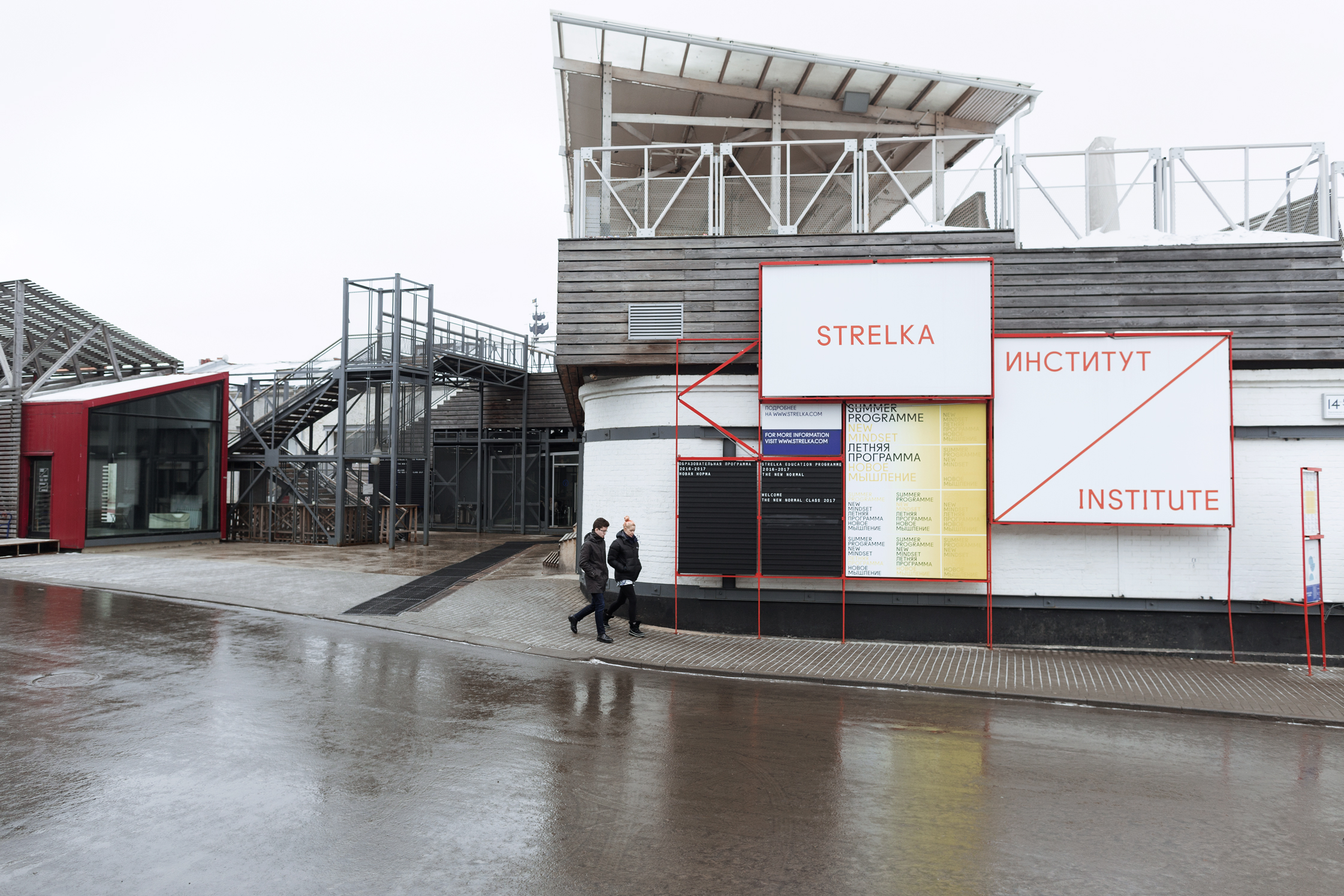
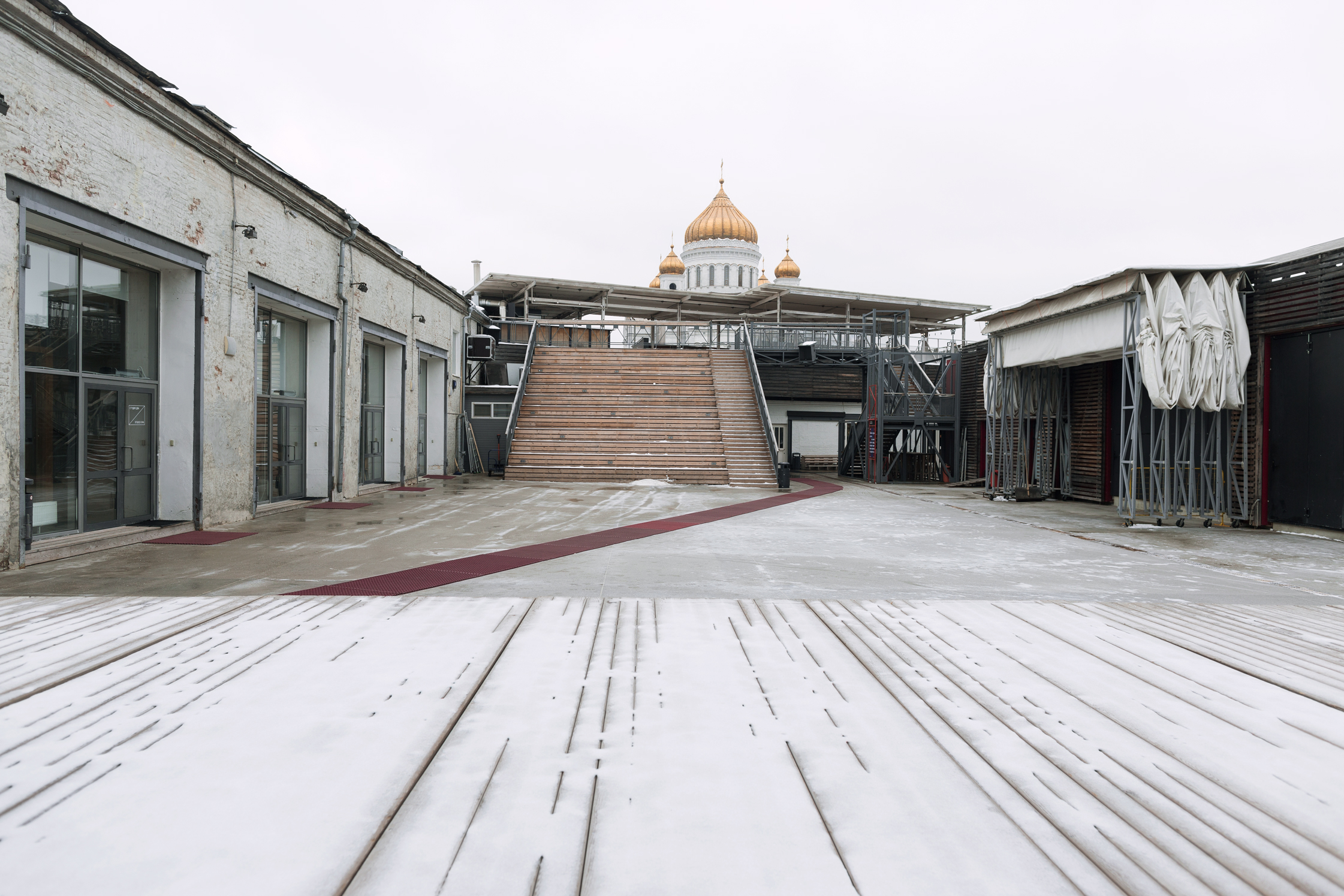
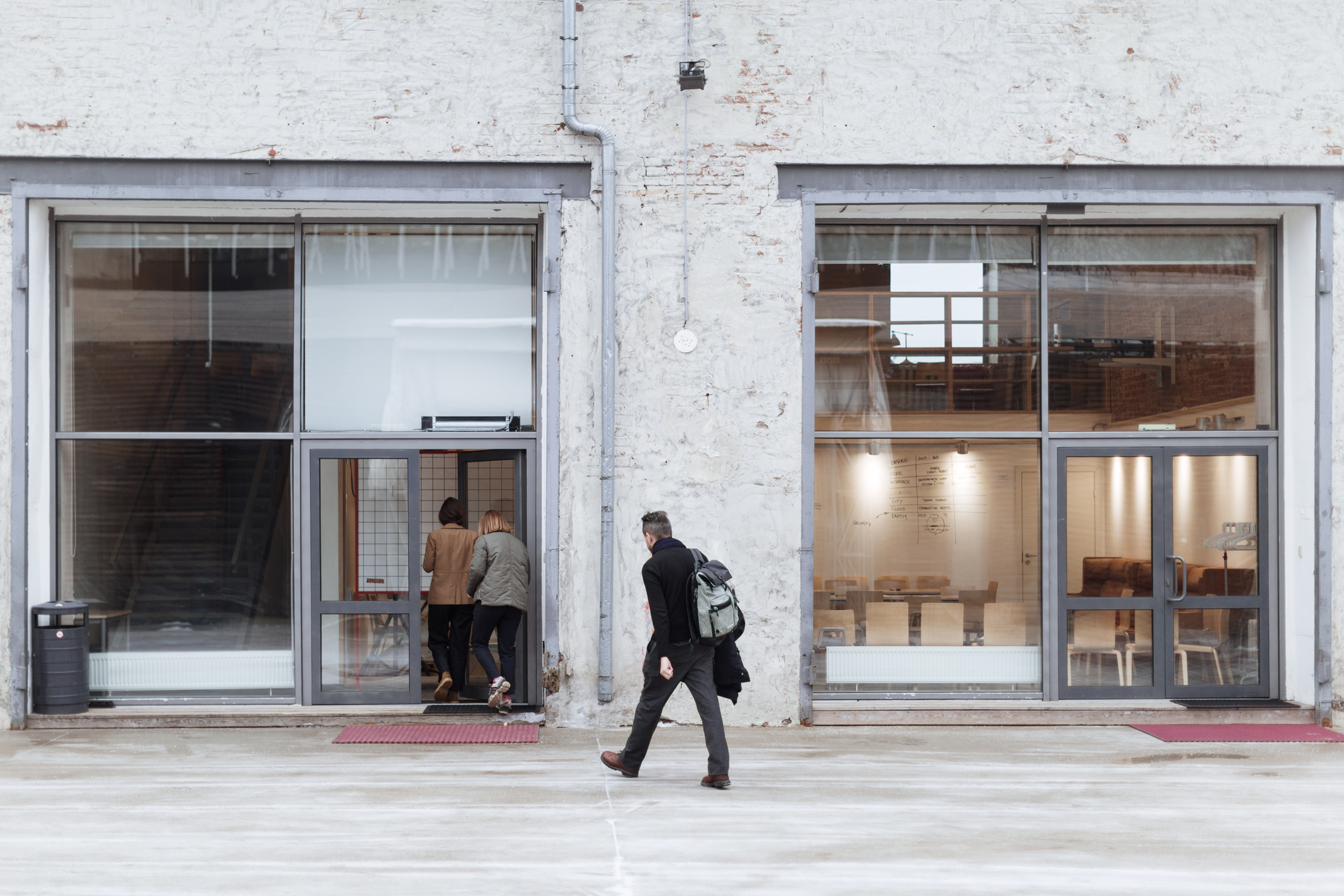
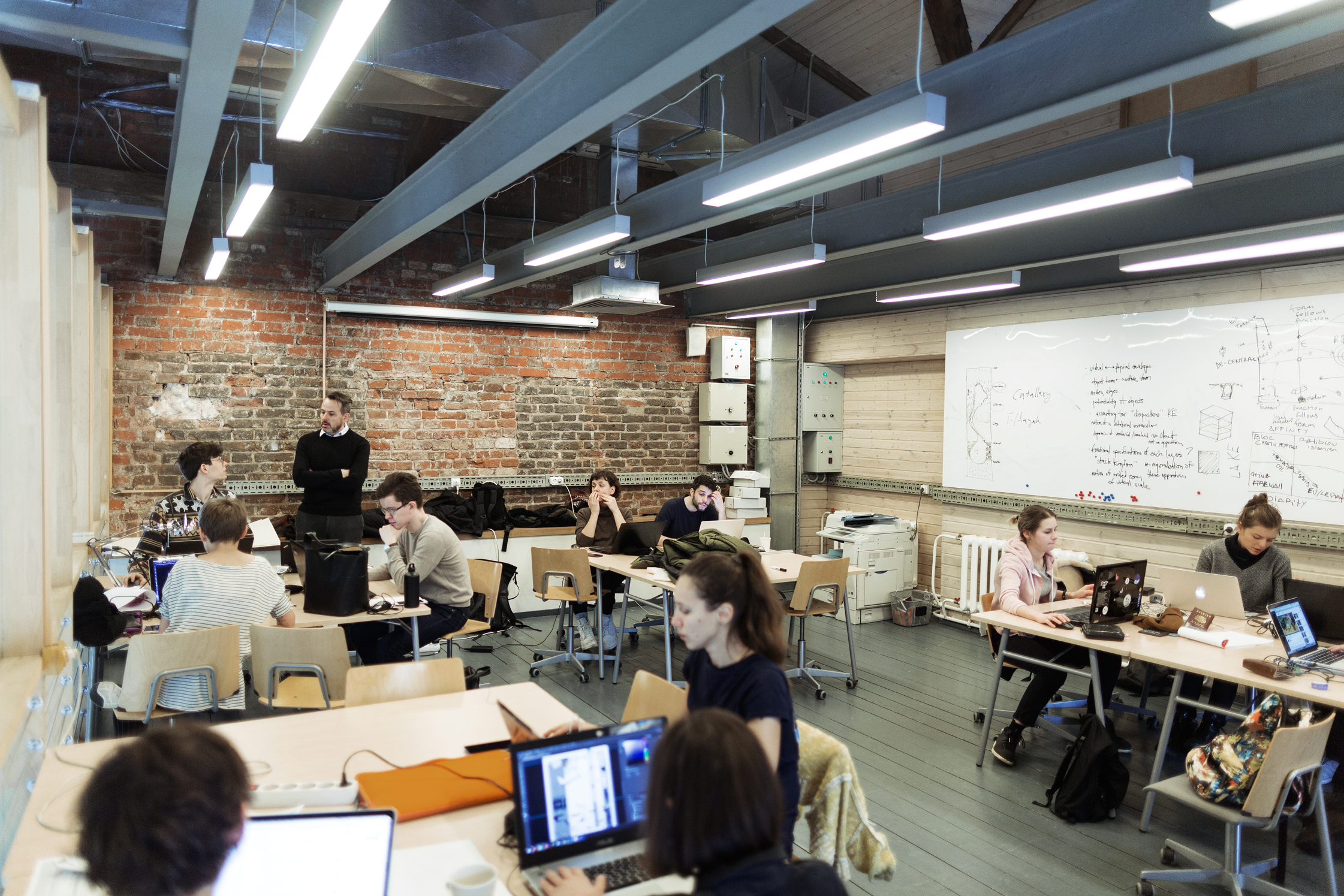
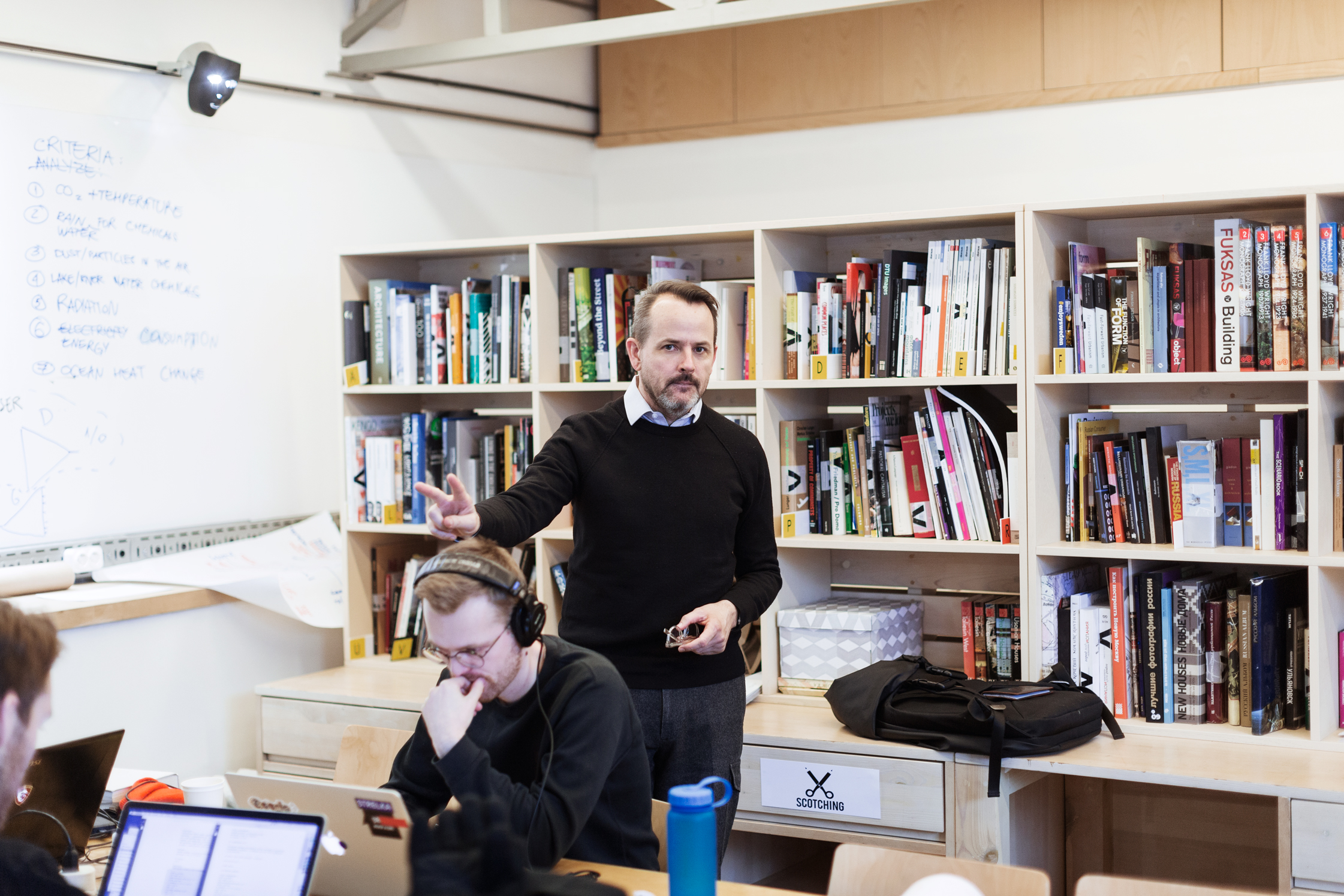
-
In your book you argue that states are turning into platforms. Can cities work like that, too?
They can, but how so remains an open question. We see ways that cities may already operate as platforms, but the most interesting question is the projective one. What could – and should – happen next? What would urban systems look like if they are rethought as platforms? In the Strelka program, we are trying to understand what the implications may be.
-
Can you explain how a city can turn into a platform?
It is not all at once, but one system at a time. It may start with how people or things get around the city and then shift to who the city admits and how so. While we can think of Uber or Airbnb as platforms, they are not necessarily the most interesting longer term developments. We first should think of how we define a “platform.” They are not just cloud platforms, but include any grid that is put in advance and which optimizes the flow of what it circulates. Also interesting is that, in many cases, platforms don’t care “who” uses them. They are available to users that may be excluded from other systems. For example, some infrastructural platforms, such as telephones and street lights and freeways, don’t care whether you are a citizen or not. Voting booths, however, do care. Urban platforms may open up access or may close It off.
“There are all these ways in which we think our intuitive experience of the world is central and true but, once we get outside of it, we realize it’s special but it’s not in the center.”
-
I know that you are writing a new book about AI. What are you focused on? How your approach toward AI has changed over the years?
I’m looking at the less-obvious design implications of A.I. and also, more theoretically, how it suggests ‘a Copernican trauma.’ These are discoveries that shift humanity off-center of the frame. For example, We once thought that we are the center of the universe but heliocentric astronomy demonstrated that we were just a part of it. We may think that our experience of mind is unique and then Neuroscience shows that intelligence is more of an emergent property of matter. There are many ways we may think our intuitive experience of the world is naturally true, but, once we get outside of it, we can see that while it may be special, it is not the center of the story. I call these ‘traumas’ because they can be quite disturbing. We have a hard time absorbing their implications sociologically, even if we know that they must be true scientifically.
A.I. represents another sort of Copernican trauma. In the book, I will look at the challenges A.I. poses to certain kinds of Humanistic thought. It starts with a critique of Turing test. While Turing was, I believe, a hero, the idea that we should recognize A.I. only if it seems to perform intelligence the way we think is wrong. The anthropocentrism is dangerous. -
And what should we use instead to measure AI?
I don’t think we should measure it! I see it as a question of encounter and communication. I think of AI almost in terms of first contact narratives in sci-fi (or colonial history). In philosophy it’s called the other mind problem.
How do you communicate with a mind that is embodied in the world so differently than you are that shared references are uncertain? Tarkovsky’s Solaris is a wonderful film about the other mind problem (the alien intelligence is trying to communicate with the Earthings by putting thoughts in their minds directly). The question of A.I. should be asked in this way. A.I. will demonstrate that thinking occurs in diverse ways along a much broader spectrum than we may have imagined.
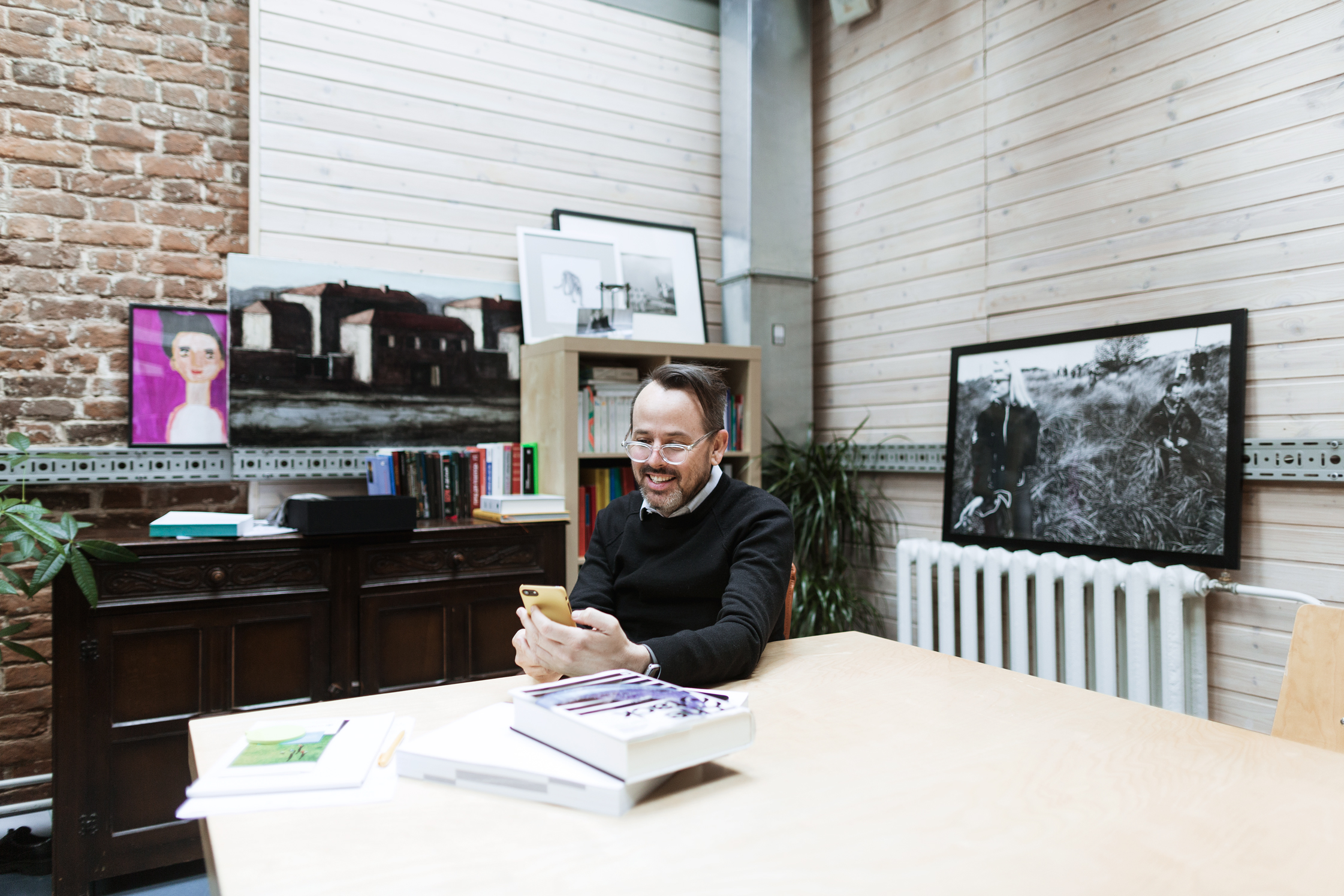
“The problem is that the only thing we are willing to love has to be like you and the precondition for loving is seeing your reflection in it.”
-
Are there any design cases that you are looking at? For example, are you interested in conversational interfaces?
I just published a piece on conversational UI called ‘Can the Bot Speak?’
When we insist that A.I. pretend to be human in order for us to interact with it, and we miss out on many things that are going on. It can be dangerous because most people don’t understand how the system is actually working. Everyone knows Siri is not a real person but we pretend that it works a certain way. It’s a kind of bad faith, isn’t it?
I don’t mind that we treat Siri with real feelings. The problem is not that someone would love a machine. I think the fact that people can have even an emotional or erotic attachment to an inanimate matter is probably okay; it may even help us with some ecological problems. It’s helpful to think of the Earth as something we are part of and not something we are on top of. The problem is when the only thing you are willing to love has to be like you and the precondition for loving is seeing your reflection in it.
-
But people harass Siri all the time and it sounds in a very old-fashioned ladylike way.
There are other personalities we can make for CUI. I have had students who made several alternative personalities, different than Siri. The gendering of the AI is a complex issue. It’s interesting that Turing himself was a gay man and had to pass as a straight man. I think there is something to be said about making an A.I. pass as a human in relation to making a gay man pass as a straight person. The question of passing is why I find things like Siri a bit suspicious. Passing in most cases says more about the audience than about the performer, and what is says about us is not good news. What may an A.I. that is ‘not pretending’ look like, and sound like to us?
I’ll give you another example: There was a journalist who did a piece about robot callers. He recorded the conversation with one of these callers and he kept asking if it is a robot or are you a person, and it kept saying that it is a real person. As you listen to this, first of all you think that this guy is abusing the A.I. The fact that programmers taught A.I. to lie is also kind of perverse. It doesn’t know that it’s lying of course but that’s not quite the point is it? The journalist knows the answer to this question but still makes it perform for our benefit. Difficulties will remain if we refuse to deal with these things as they are and insist they perform only as what they are not. That never works. It makes for bad Anthropology and will not help steer the technology toward more beneficial ends. That is what my next book is really about.
-
How do you manage to work between Moscow and California? How do you manage your time?
I move back and forth every few weeks. It’s my sabbatical year at UC San Diego. Every seven years as a tenured professor you get a year off for research. I spend my year at Strelka, researching these problems with an amazing team of collaborators. For me, having one platform in one part of the globe and another platform in the other is ideal. The richness of a place like Moscow allows me to see things in California that I’ve never seen before. They are very different worlds, and moving between both sometimes feels like a kind of space travel. The result for me is very rewarding.
“Things that we end up doing may be so unexpected and even whimsical to those who want to be censorious and they don’t even know which part to censor.”
-
Do you feel any pressure or limitations running a program called ‘The New Normal’ in Russia?
Not really, but Strelka is a bit of a bubble, it is true. We are in a ‘golden cage’ as they say. Here we can try things that would be harder to do elsewhere in Moscow. I think there is even a level of expectation that we do things that would not be done somewhere else. The questions that we are asking need to be radical because we are trying to understand what urban form can be, more than what it already is. It’s a deeply political question but not a surface-level political question. It cannot be answered through not the short-term noise of the Twitterverse about good guys and bad guys. The work that we do may be so unexpected and even whimsical to those who would be censorious and they don’t even know which part to delete. In the Soviet era, many of the best writers were children’s book writers or sci-fi writers. Both genres provide a kind of alibi. The alibi of sci-fi is that it happens in the future and even though that’s we are all going, there is enough allegory to save face.
-
What do you do when you’re not writing or teaching?
I catch up on sleep! I feel a little bit on the clock because I want to write as many significant books as I possibly can while my mind is still sharp. I also want each project to be something unique. I spend as much time with my family as I can; my son is now 8 years old and we do many things together.
-
I guess his approach toward tech is different from ours.
Yes, some things that may be interesting to my generation are banal to his. He was born the same year the iPhone came out and he grew up with iPads, so when he was an infant he would try to swipe books like a screen. More recently, when I brought home HTC Vive virtual reality system I thought I would be a big hero, but he said ‘Dad, I can’t see my hands, this isn’t done yet’. He wasn’t impressed. He is more interested in biology. We went to Costa Rica over Christmas and he was fascinated by the ants and frogs and was excited to explain the natural systems to us. I think for his generation, computation and biology will seem much more interrelated, which of course they are.
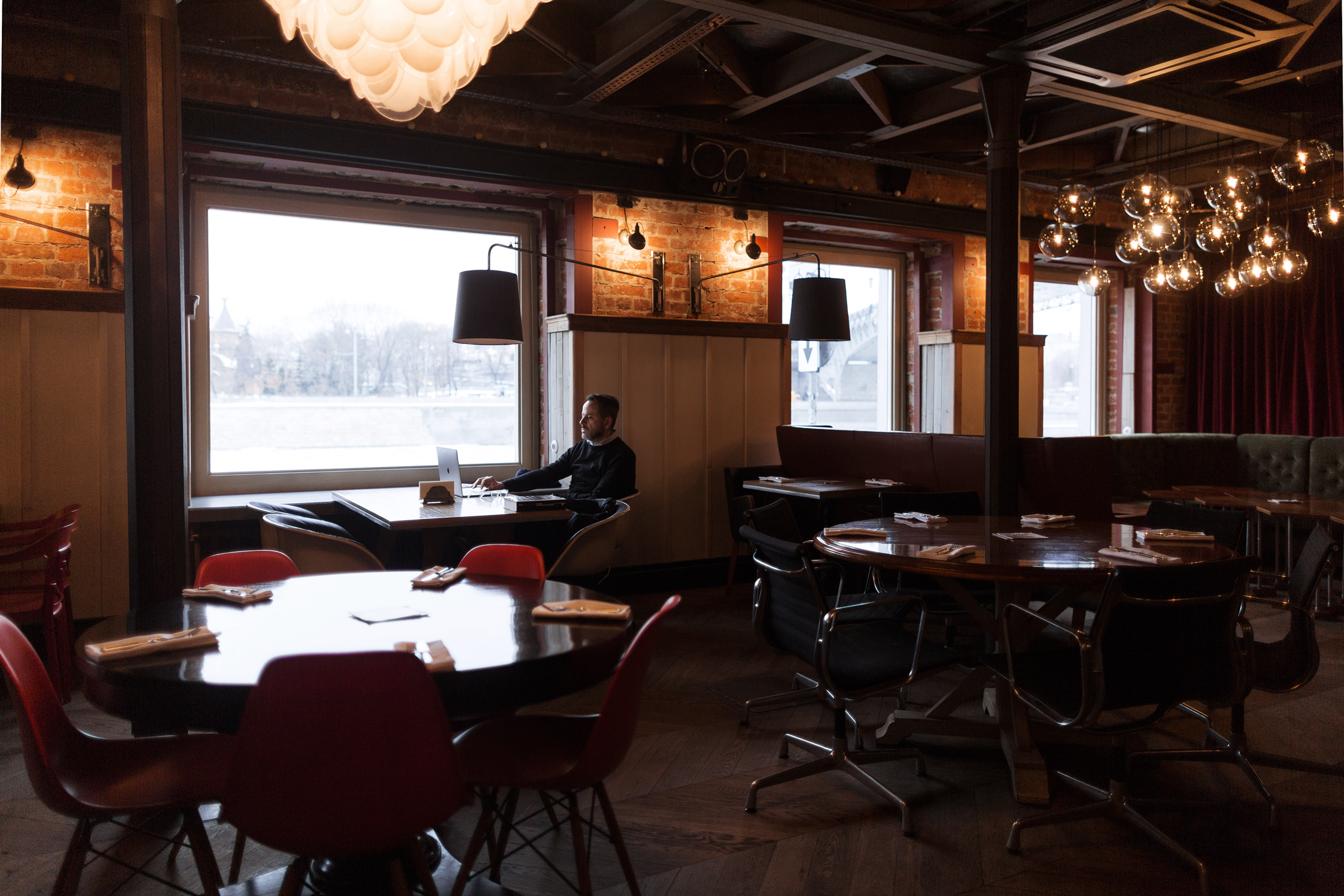
Thanks, Benjamin,
For giving us a behind-the-scenes of the educational process. If you want to find out more about Benjamin’s work, follow him on Twitter: @bratton. Also check out @strelkaschool, Strelka Institute and #strelkathenewnormal for more information about the program.
For further insights into the future of urban living, check out our inaugural creative conference, The Sooner Now and related essays here.
Interview: Anna Savina
Photography: Egor Slizyak
